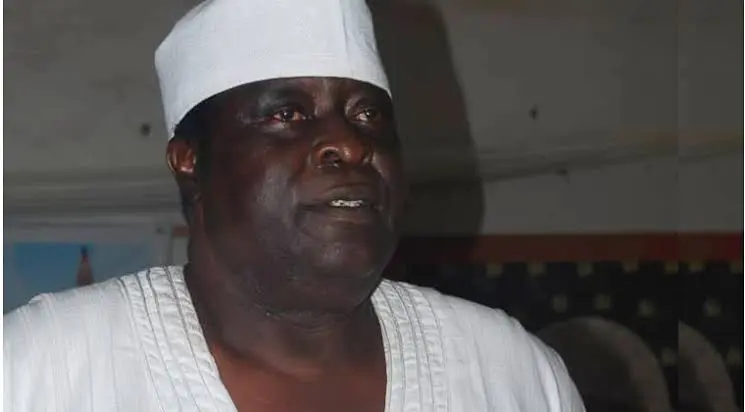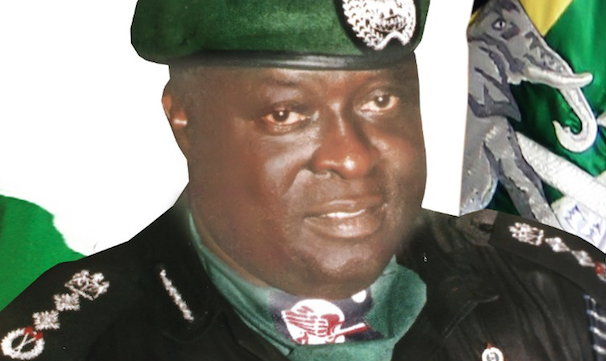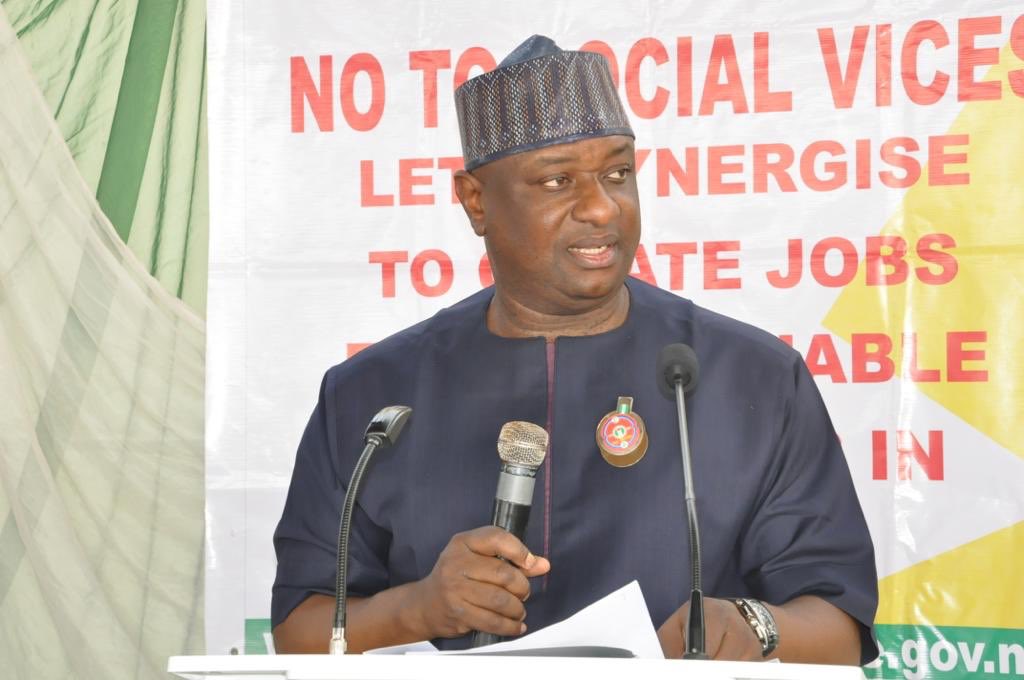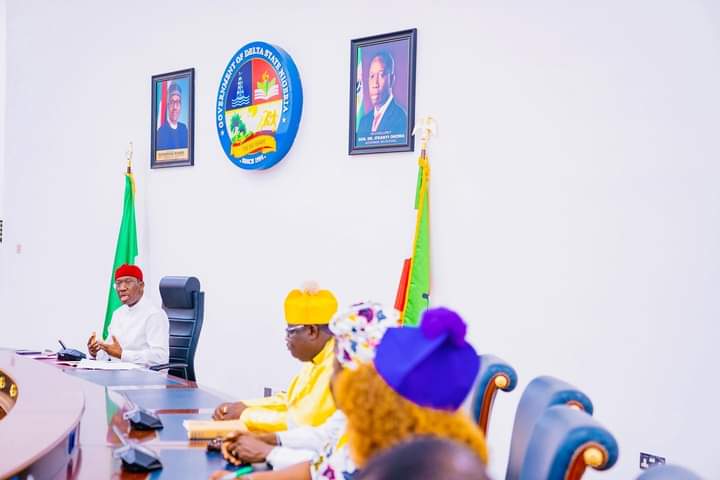In his prime, Tafa Balogun was a powerful inspector-general of police (IGP). He controlled a large police force, surrounded by armed personal security details, had vast resources at his disposal and also had the ears of the high and mighty in the society, including the president. Indeed, he was the delight of favour seekers. A six-footer, he was large in stature and doings. His carriage was intimidating and his appearance commanded respect.
But he didn’t last long. The former IGP was brought to his knees by a junior officer in the force, Nuhu Ribadu, then assistant commissioner of police and chairman of the Economic and Financial Crimes Commission (EFCC). Balogun was caught with both hands buried in the cookie jar.
Slammed with multi-billion-naira corruption charges by the anti-graft commission, Balogun was handcuffed and led to the court. He was manhandled by junior officers who had probably saluted him while he held sway as the IGP. At a time, he slumped in court and began to convulse. How are the mighty fallen, the Holy Book quipped.
He entered a plea bargain agreement, the first of its kind in the country, and got away with a six-month sentence. The ex-IGP was reported to have spent most of the jail term bedridden at the Abuja National Hospital. At a time, there were rumours that he died in prison.
Advertisement
Thereafter, Balogun retreated from the public glare. Some said he was nursing some ailments, while he occasionally appeared in public functions. On Thursday, he finally succumbed to death at a hospital in Lagos after a brief illness.
HIS BACKGROUND
Mustafa Adebayo Balogun, nicknamed Kumawu, was born in Ila Orangun, Osun state, on August 8, 1947. He was married to Olufunke Balogun and blessed with children.
Advertisement
He attended the University of Lagos, graduating in 1972 with a bachelor of arts in political science. A year later, he started his career with the Nigeria Police Force (NPF) where he continued his quest for knowledge by obtaining a law degree from the University of Ibadan. He was also a member of cadet assistant superintendent of police (ASP) course 3.
After working in various positions around the country, Balogun started to gain traction in his career. He became the principal staff officer to Muhammadu Gambo, former IGP, which laid the path to becoming a deputy commissioner of police in Edo, and commissioner of police, in Delta, Rivers and subsequently Abia states.
Balogun, a fellow of the national war college, one of the earliest highest military institutions in Nigeria, would later rise to the role of assistant inspector general of police (AIG), zone one, Kano, before he was promoted to IGP on March 6, 2002.
A GOOD START: OPERATION FIRE FOR FIRE
Advertisement
The first three years after Nigeria returned to democracy in 1999 were rocked with reports of alarming insecurity. The assassination of Bola Ige, the justice minister, in his bedroom, was practically the peak of the crisis.
The need to rejig the security structure brought in Balogun as the 21st IGP, replacing Musiliu Smith. When Balogun assumed office, he was determined to distinguish himself from his predecessors. He immediately launched an eight-point crime control strategy. One of those strategies was the massive onslaught against armed robbery, gruesome murder/assassination and other crimes of violence — a mission he would call “operation fire for fire”.
The former IGP’s message was clear – criminals would be met with fire. His brilliant initiative was met with applause and admiration.
Balogun also had seven other strategies in place to combat insecurity. They included fast and decisive crisis management, a comprehensive training programme for qualitative policing, an anti-corruption crusade both within and outside the force, robust public relations, community partnership in policing, inter-service/agency cooperation at all levels and improved conditions of service and enhanced welfare package for all officers, inspectors and rank and file.
Advertisement
In testimony of his innovation, the NPF had transformed and reached feats that had never been achieved. For instance, a total of 19,135 robbery suspects were nabbed with 6,815 killed. 12,006 firearms and 472,020 ammunition were recovered while 2,148 stolen vehicles were also recovered from 2002 – 2004.
In a bid to improve the force, Balogun, alongside a five-man delegation from Nigeria, visited three police departments (Houston, Atlanta and Chicago) in the United States, to understudy proven implementations of community policing and how it could be adapted to the Nigerian situation.
Advertisement
After his visit to the US, he introduced some changes in the force. According to Balogun, in 1999, Nigeria had 130,000 policemen (roughly 1-policeman-per-1000-citizens), but under his supervision, Olusegun Obasanjo, former president, approved a 40,000 annual recruitment exercise in 2002 or thereabout, increasing the number to over 300,000, and brought the country within spitting distance of international guidelines.
The former IGP also saw that over 170,000 policemen were promoted between 2002 and 2004, which broke a record as the most number of promotions that had been carried out in the force from 1930 when the NPF was founded.
Advertisement
He took the training of officers and men of the force as a priority as over 147,347 officers and men went on various courses locally and internationally to improve their service to humanity. He also introduced regular payment of salaries and allowances.
THE CALM BEFORE THE STORM
Advertisement
Following the 2003 elections which recorded so much violence, Nigerians soon began to call for the removal of the man who had once sheltered them from criminals. Despite the intense criticism, the former police boss rose stoutly to defend the police for coordinating a peaceful transition from one civilian government to another, which he said had never happened in the history of Nigeria. He branded his opponents as detractors who wanted to bring down the government.
But while Balogun was recording strides, Nigerians were reeling in shock from stripes on their backs inflicted by the infamous “operation fire for fire” squad. During that same period, accusations of human rights abuses by the police rose. Balogun made apologies and promised that those responsible would be punished.
Balogun was also very vocal in his opinions of community policing, describing it as a cornerstone of the security structure required for peace and tranquillity in the country.
According to him, security problems degenerated in the country because it had been treated with a kid’s glove and the #EndSARS protest would not have happened if there had been community policing.
“I urge all members of the Nigeria police in our country to return to their duty posts and continue to provide the much-needed security to our dear country, Nigeria; not minding the recent brutal attacks, arson, and acts of intimidation against the police,” he charged.
But Balogun’s glowing beginning would soon have its embers fanned out by startling corruption charges.
THE GATHERING STORM

While Balogun loudly punished officers for pilfering money from the force, he secretly smiled to the bank with his. The former IGP made sure he moulded his colleagues into crime-fighting machines, a decision he would come to regret in his prison cell.
Ribadu, an assistant commissioner of police (ASP) and EFCC boss, led the parade of his boss in cuffs.
According to Ribadu, “the point is that whoever crosses the line will be dealt with. Whether a constable or an IGP, it’s the same thing. The solution is not to cross the line.”
“When you execute your mandate honestly, you become blind to the position of individuals. Justice is blind.”
Prior to this, Obasanjo said he had received a report by the Department of State Service (DSS) that Balogun was looting police funds.
The former president said he immediately summoned the police boss to the state house and warned him about the indicting reports of his activities, but Balogun denied all allegations and continued to steal money.
The former president revealed this at his 80th birthday dinner organised by his former appointees under the aegis of “Political Children of Obasanjo” in Lagos.
According to him, another report by the EFCC surfaced a few months later detailing the corrupt activities of the former IGP.
“I called him and said, Tafa, why do you have to destroy your name and career even though you will forever enjoy your privilege and salary as a former IGP for life? On a particular day, Balogun was at the villa to see me; Ribadu was also around and he threatened to arrest Ribadu over the report,” Obasanjo said.
“I had a hunch that Nuhu may leak the report to the press as he was close to them. I immediately called Balogun to give his letter of resignation. I told him if I don’t get the letter in 30 minutes, I will dismiss you.”
Obasanjo recounted that while he asked the EFCC not to arrest Balogun in the villa, Ribadu told the ex-IGP to his face that he would arrest him outside.
Seeing his “boys” engage in a political rumble was not pleasant to watch but was necessary to clip wings that had begun to fly too high.
Balogun’s close affinity with the seat of power gave him so much confidence that nobody could remove him from office, but seeing his subordinate “betray” him was not a scene he ever imagined.
N17BN THEFT: THE CORRUPTION TRIAL
Towards the end of 2004, allegations of corruption on a massive scale were reported under Balogun. The then IGP was accused of pocketing public funds and taking bribes from politicians and criminals.
According to the charges filed by the EFCC, he was accused of misappropriating funds of the NPF between 2000 and 2005 and was arraigned alongside seven companies alleged to have been used by him to commit the crime.
He resigned in January 2005.
Balogun was first arrested on March 3, 2005, and was arraigned at the federal high court, Abuja, on April 4, on charges involving about N13 billion obtained through money laundering, theft and other sources. The EFCC under Nuhu Ribadu brought a total of 70 charges against Tafa Balogun covering the period from 2002 to 2004.
He made what the presiding judge termed a “remorseful” plea, bargaining with the court in exchange for returning much of the property and money. As a result, he was sentenced to six months in jail and was released on February 9, 2006, after serving his sentence.
As a first offender, he was directed by the court to pay N500,000 on each of eight counts of charges totalling N4 million.
At the time of his resignation, the EFCC said bank accounts containing over N1 billion alleged to be government funds were linked to him while assets in forfeiture were worth N2 billion in excess.
Ribadu said the commission recovered N17 billion from the former inspector general of police.
One of the seized landed properties belonging to the former IGP, it was revealed, became a shelter for a number of homeless people.
In November 2008 and February 2009, Abdul Ahmed Ningi, the chairman of the house committee on police affairs, demanded a report from Mike Okiro, the then IGP, providing details of the money recovered from Balogun, a request that Okiro passed on to Farida Waziri, the EFCC chairman at that time.
The anti-corruption body, however, stated that they did not have records of the exact properties recovered from Balogun. It was said that some of the houses had been secretly sold to certain individuals at give-away prices.
In April 2009, the house of representatives committee on police affairs invited Balogun, Okiro and Waziri, over their inability to account for billions of naira allegedly recovered from Balogun.
THE CHIEFTAINCY TITLE
In 2020, first-class traditional rulers and several other eminent personalities converged at Ila-Orangun to confer a traditional chieftaincy title of Oluomo (the star child) of Igbomina land and award of excellence on Balogun. The king of the town said the title belonged to a powerful man.
But an award of excellence and chieftaincy title was not enough to return Balogun to sainthood, his kinsmen decided that a presidential pardon absolving him of a “political conviction” was necessary.
His kinsmen argued that the former IGP was a “victim of circumstance” and said it would be impartial of Goodluck Jonathan, the former president, to snub him while he handed out state pardons.
Balogun’s past soon started to mar the glorious career he had painstakingly built for himself. At a time, it was reported in the media that the federal government had considered stripping the former IGP of his national honour as the Commander of the Order of the Niger (CON).
The process, the committee said, was imperative to ensure the credibility, dignity and prestige of the process — qualities that were found wanting in the former IGP.






